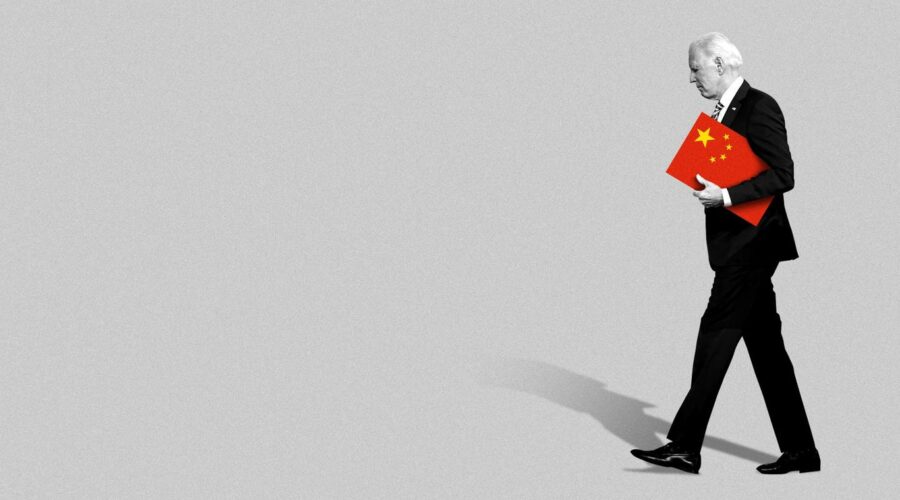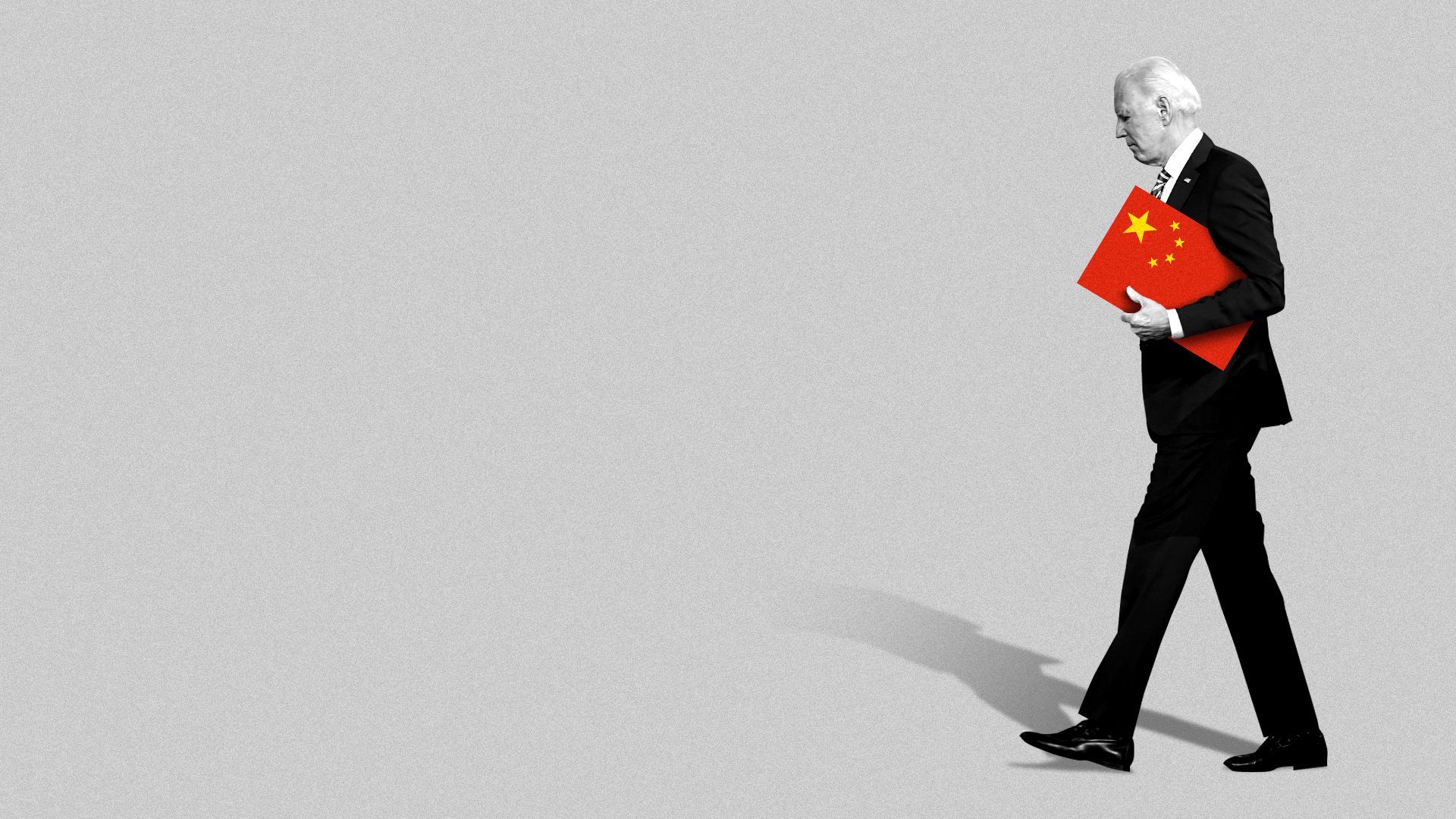Labor unions warn Biden not to lift Trump's China tariffs — even to fight inflation
Photo illustration: Aïda Amer/Axios. Photo: Drew Angerer/Getty Images
President Biden is facing public pressure from America's leading unions on an issue that has divided his top advisers: extending former President Trump's China tariffs on approximately $300 billion worth of Chinese goods.
Why it matters: The Biden administration is engaged in an intense internal debate on whether to waive some of the so-called Section 301 tariffs to help ease inflation — the top issue roiling Biden's presidency.
- By filing an official comment with the Office of the U.S. Trade Representative Monday evening, union leaders are going public with what they've been saying in private: they expect Biden to keep all of Trump's tariffs in place.
- "Our government must act in the national interest to strengthen our economy for the future," writes Thomas Conway, the president of the United Steel Workers, in a comment filed on behalf of the Labor Advisory Committee for Trade Negotiations and Trade Policy.
Context: Biden, who prizes his relationship with organized labor, has taken pains not to aggravate union leaders and is deeply hesitant to cross them.
- But fiddling with Trump's tariffs is one of the few dials the president has that can marginally affect the inflation rate, which currently sits at 8.3% and is clearly spooking Democrats heading into the midterms.
Driving the news: Commerce Secretary Gina Raimondo said Sunday that it "may make sense" to lift some of Trump's China tariffs and mentioned specific products — like bicycles — that could be exempted.
- "I know the president is looking at that," she said on CNN's "State of the Union."
- Raimondo is joined by other Biden officials, like Treasury Secretary Janet Yellen, in arguing behind the scenes that removing some tariffs could ease the pain for Americans fed up with high prices.
- On the other side are officials like U.S. Trade Representative Katherine Tai, who argues that the U.S. should take a more strategic approach to the tariffs — both to protect American workers and to maintain leverage over China.
- Fighting inflation should not be reduced to a "singular focus" on China tariffs, Tai said Monday, making her case for a "thoughtful, deliberate, strategic" approach to the U.S.-China trade relationship.
The big picture: With record-high gas prices reminding Americans every day that inflation is soaring, the White House is looking for ways to show voters it is serious about bringing down costs.
- Politically, there's no debate that it's taking a toll — just 28% of Americans approve of Biden's handling of inflation, according to a recent survey from ABC News/Ipsos.
- Biden has repeatedly said in recent weeks that fighting inflation is his "top priority," but officials know they have limited tools to bring it down quickly.
- Top officials suspect that removing Trump's tariffs would have only a marginal effect on the overall inflation rate, about 0.26%, according to one study.
- Biden has released oil from the Strategic Petroleum Reserve to lower gas prices and is soon planning to visit Saudi Arabia, which just announced plans to increase its oil production.
- Some Democrats are clinging to hopes that Sen. Joe Manchin (D-W.Va.) might agree to a climate and energy package that would also force the pharmaceutical industry to negotiate directly with Medicare, lowering prices for consumers.
Between the lines: The Labor Advisory Committee wants to bolster domestic production and manufacturing but also needs America's business community to take potential threats from the Chinese Communist Party more seriously.
- "Too many U.S. companies have failed to take needed actions to address the threat posed by CCP policies," Conway writes in the official comment.
- "Many continue to outsource production and research and development, undermining U.S. competitiveness and national security interests."
The bottom line: White House officials — and Biden himself — are always careful to emphasize that fighting inflation is primarily the responsibility of the Federal Reserve.
Source: Read Full Article


